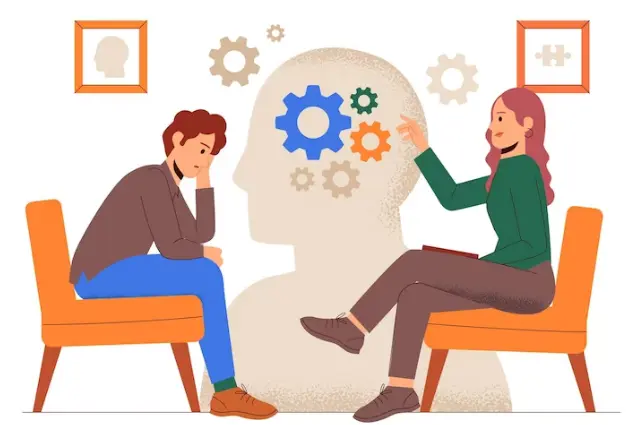
Basics of Behavioral Psychology
Behavioral psychology, also known as behaviorism, is a branch of psychology that focuses on the study of human and animal behavior. It is based on the principle that all behaviors are acquired through interaction with the environment. Instead of focusing on thoughts and emotions, behavioral psychology examines how external stimuli influence actions, making it one of the most scientific and observable fields in psychology.
From habit formation to learning processes, behavioral psychology helps explain why people act the way they do and how behaviors can be modified. This article will explore the key principles of behavioral psychology, its theories, real-life applications, and how it impacts modern life.
What is Behavioral Psychology?
Behavioral psychology is the scientific study of behavior and how external factors such as rewards, punishments, and reinforcement shape actions. Unlike other branches of psychology that focus on emotions or cognition, behaviorism is concerned with observable behaviors that can be measured and changed.
Key Principles of Behavioral Psychology
- Behavior is Learned – People develop behaviors based on experiences and conditioning.
- Reinforcement Strengthens Behavior – Positive rewards encourage repetition of behaviors.
- Punishment Reduces Behavior – Negative consequences decrease undesirable actions.
- Environment Shapes Behavior – External factors influence decisions and actions.
- Behavior Can Be Modified – Through conditioning techniques, behaviors can be changed.
Key Theories of Behavioral Psychology
Several psychological theories have been developed under behaviorism, shaping how we understand learning and behavior modification.
1. Classical Conditioning (Pavlov’s Theory)
Developed by Ivan Pavlov, classical conditioning explains how associations between stimuli lead to behavior changes.
Example:
- Pavlov’s experiment with dogs showed that they could be trained to salivate at the sound of a bell when repeatedly associated with food.
- In real life, this explains phobias, advertising techniques, and emotional responses triggered by specific stimuli.
2. Operant Conditioning (B.F. Skinner’s Theory)
Proposed by B.F. Skinner, operant conditioning states that behavior is shaped by consequences.
Example:
- If a student receives praise for good grades (positive reinforcement), they are likely to continue studying hard.
- If a child is given a timeout for misbehaving (punishment), they learn to avoid that behavior.
3. Social Learning Theory (Albert Bandura’s Theory)
Albert Bandura introduced the idea that people learn by observing others.
Example:
- Children imitate the behaviors of parents, teachers, or peers.
- People learn new skills by watching instructional videos or following role models.
Applications of Behavioral Psychology in Everyday Life
Behavioral psychology is not just a theoretical concept; it has practical applications in various fields, including education, mental health, marketing, workplace productivity, and personal development.
1. Education & Learning
- Teachers use positive reinforcement (praise, rewards) to encourage learning.
- Gamification in education applies behaviorism by rewarding students for participation.
- Behavior modification techniques help students develop better study habits.
2. Marketing & Advertising
- Brands use classical conditioning to associate products with positive emotions (e.g., Coca-Cola linking its brand to happiness).
- Loyalty programs (rewards for repeat purchases) rely on operant conditioning.
- Fear-based marketing creates urgency (e.g., "Limited-time offer" or "Only 2 items left!").
3. Workplace Productivity
- Employers use bonuses, promotions, and recognition as positive reinforcement.
- Negative reinforcement can encourage efficiency (e.g., reminders until a task is completed).
- Behavioral training helps employees develop time management and leadership skills.
4. Parenting & Child Development
- Parents use reward systems to encourage good behavior (e.g., a star chart for chores).
- Time-outs or loss of privileges act as negative reinforcement for misbehavior.
- Modeling desirable behavior helps children learn through observation.
5. Mental Health & Therapy
- Cognitive Behavioral Therapy (CBT) incorporates behaviorism to modify negative thought patterns.
- Exposure therapy (used for treating phobias) is based on classical conditioning.
- Habit formation and breaking unhealthy habits use reinforcement techniques.
Behavioral Psychology and Habit Formation
Many daily behaviors, from exercising regularly to procrastinating, are shaped by behavioral psychology.
How to Build Positive Habits
Use Positive Reinforcement – Reward yourself for small achievements.
Make It a Routine – Repetition strengthens new behaviors.
Eliminate Negative Triggers – Remove distractions that lead to bad habits.
Use Behavior Tracking – Monitoring progress keeps you motivated.
Example:
- Setting a small reward for going to the gym increases motivation.
- Removing junk food from your home helps you develop a healthier diet.
Criticism of Behavioral Psychology
While behavioral psychology is widely accepted, it has some criticisms:
- Ignores Thoughts & Emotions
- Behaviorism focuses on observable actions but ignores cognitive processes.
- Lacks Individual Differences
- Assumes that all behavior is shaped the same way, overlooking personality differences.
- Does Not Explain Internal Motivation
- Focuses on external reinforcement rather than intrinsic motivation.
Despite these limitations, behavioral psychology remains one of the most influential fields in understanding human behavior.
Future of Behavioral Psychology
With advancements in neuroscience, artificial intelligence, and digital technology, behavioral psychology is evolving in several ways:
- AI-driven behavior analysis for personalized learning experiences.
- Behavioral interventions for mental health, using mobile apps and virtual therapy.
- Machine learning algorithms improving customer behavior predictions in marketing.
- Workplace behavioral analytics to boost productivity and team performance.
As technology advances, behavioral psychology will continue to shape fields like healthcare, education, business, and social behavior analysis.
Conclusion
Behavioral psychology provides a scientific approach to understanding why people behave the way they do and how behavior can be modified for positive outcomes. Whether it’s shaping habits, improving workplace productivity, or enhancing marketing strategies, behaviorism plays a critical role in everyday life.
By applying behavioral psychology techniques such as positive reinforcement, habit formation, and social learning, individuals and organizations can create better learning environments, improve decision-making, and drive behavioral change effectively.